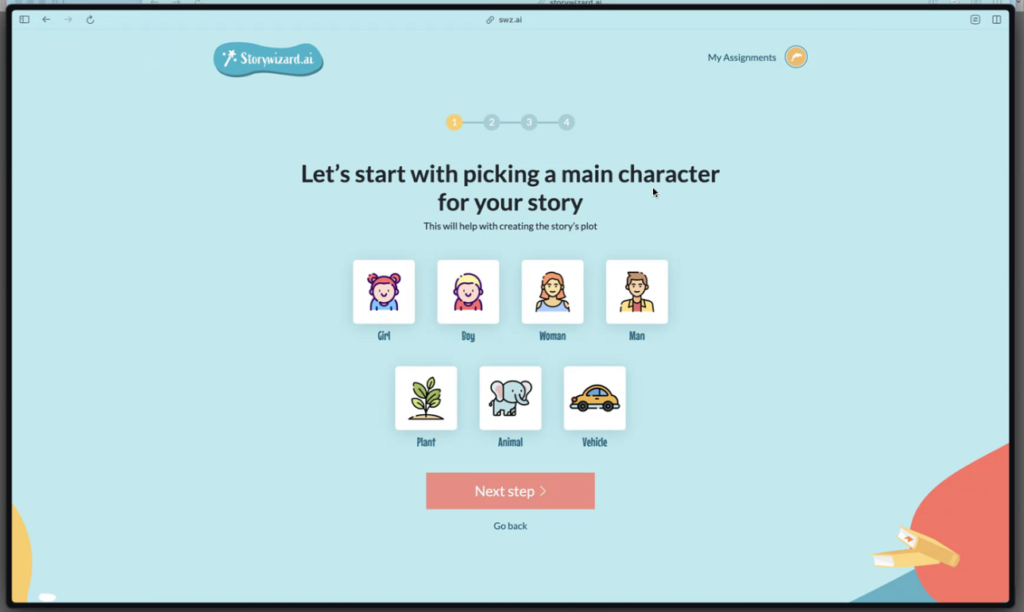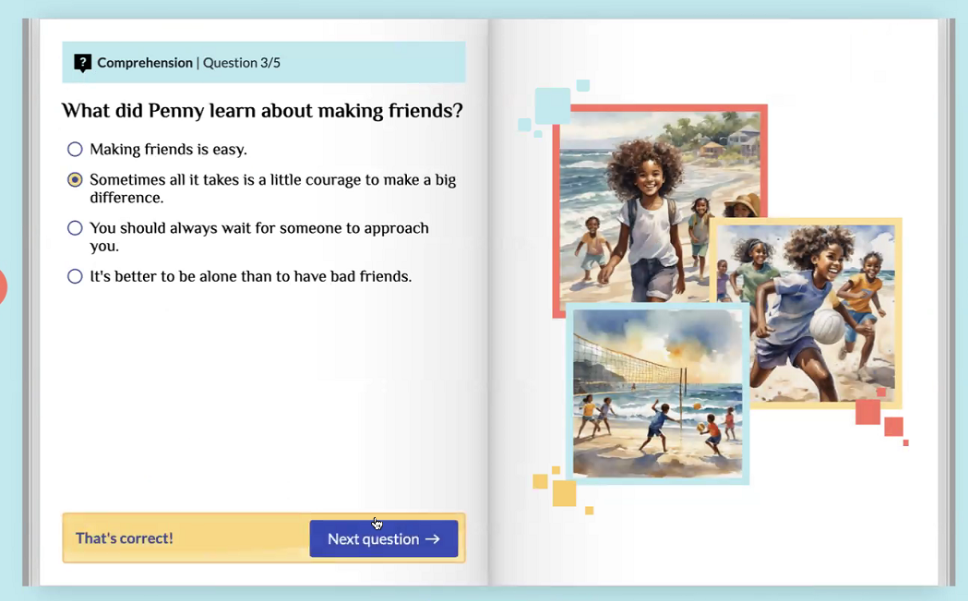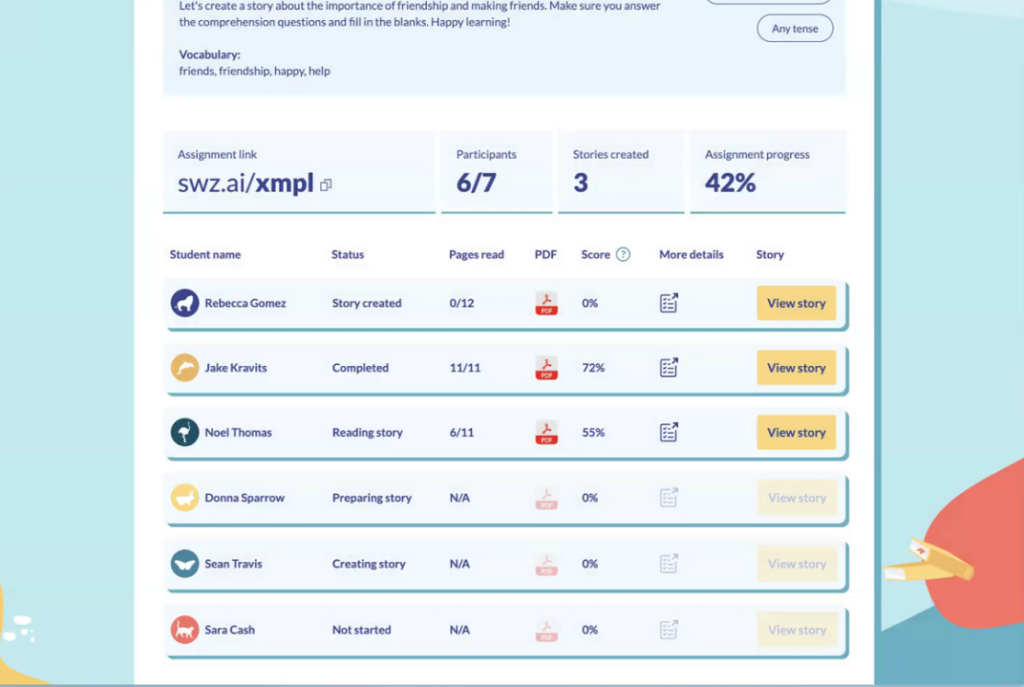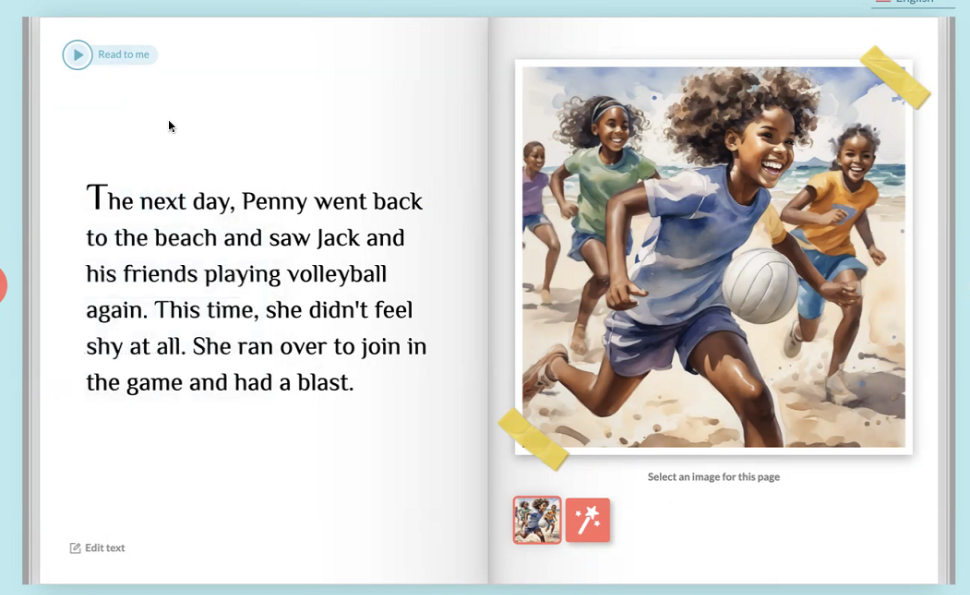Once upon a time, there were two Israeli fathers who wanted to make their young children the stars of their own bedtime stories.
So the two fathers – Nadav Yaron and Ofir Kerker – created an artificial intelligence platform that would allow children to choose the plot and the characters of their story, and the platform would write the tale for them.
And when teachers realized how much children loved using it at home, they decided it would be perfect for their classrooms too.
So the two fathers developed a teaching function that was laid atop the existing platform, taking into account educational principles and practices.
StoryWizard, the company Yaron (CPO) and Kerker (CTO) created just over a year ago, is today used in thousands of schools in scores of countries around the world.
“We went to talk to teachers, actually visiting schools to understand what was going on – why is everybody using this in the classroom?” Yaron tells NoCamels.
“We found out that teachers use this product to engage students, essentially letting them create stories in their own interests,” he says.
“The vanity effect of creating your own stuff and learning from it has a lot of potential teaching power.”
The StoryWizard platform is entirely web-based, doing away with the need to install an app or any other software – either for kids or teachers.
The teacher simply goes to the website and creates an assignment for the students. How detailed the assignment is and how many themes it includes is up to the teacher.
“An assignment can be: ‘Hey class, today, let’s create a story about the importance of friendship. And I want you to do this in two to three paragraphs and I want you to discuss the characters and I want you to come up with a conflict and how you think it should be resolved’,” Yaron says.

The student reads the assignment on his or her own device and then uses the platform to create a story prompt (directions for the AI to follow) based on the requests of the teacher. They choose the names of the characters who appear and what happens to them – and even the style of artwork that accompanies the story.
Once all the required data has been entered into the prompt, the platform creates the story and artwork (and will even change the artwork for each page if so desired).
Students who struggle to write the prompts can record them for the story with a built-in microphone on the platform. And once the story has been created, those who find reading a challenge can have it read back to them as well.
The entire platform is child-friendly, ensuring that all potentially offensive or adult words, phrases and even themes cannot be introduced in the stories.
“We understood very quickly [that] we have to do semantic filtering rather than just profanity,” Yaron says. “So we can now filter ideas or concepts.”
While the platform appears to children in a simple, easy-to-use format, StoryWizard includes a sophisticated program that allows teachers to monitor each student’s performance, task completion and whether the key teaching objectives have been met.
Sign up for our free weekly newsletter
Subscribe“We created features for teachers,” Yaron explains. “Reading exercises, reading aloud, reading assessments [and] the ability to create assignments based on vocabulary and tenses – a lot of tools that we learned that teachers need in the classroom.”

As a story is created, the platform also devises two exercises based on the text that allow the teacher to assess the success of the assignment.
The exercises are a reading comprehension designed to verify that the student actually did read the story, and a test of vocabulary that asks the student to insert a missing word in a sentence, based on the narrative.
During the assignment, the platform also tracks every action by the student and notifies the teacher on the pages read, the number of words looked up in a dictionary and their success rate in the exercises.
“The entire performance is recorded and sent back to the teacher for progress tracking and adaptive learning,” Yaron explains.
The difficulty of the story and the questions are determined by the teacher as they set the assignment, making it suitable for multiple age groups and students of all ages who are learning English as a foreign language.

Apart from English, the prompts and the story itself can be created in eight different languages – Arabic, French, German, Hebrew, Italian, Korean, Spanish and Russian. The read-aloud feature is also available in each language.
“We will detect the language and we’ll create the story in your language,” Yaron says.
It is particularly popular in Italy and growing numbers of American schools are also adopting the platform. In Israel, it has received Education Ministry approval and is used in hundreds of institutions.
But with different countries comes different cultural and educational requirements.
“We’re trying to be as granular as possible in terms of geography,” Yaron explains. “Different countries care about different things and have different standards.”
The Ra’anana-based company initially raised its own funds, says Yaron, who like Kerker is a veteran of the Israeli high-tech industry. Now they are in the middle of a fundraising round, with what he says are “very interesting partners and investors” from around the world.

The company continues to grow and develop. Last October, American edtech innovator Ogden Morse joined as the new CEO and in January, the company won the Global Edtech Startup Awards (GESA), the world’s largest competition in the field, beating out more than 3,000 submissions from 134 countries.
“We competed against thousands of startups from around the world in the education technology industry,” Yaron says. “[It was] was very cool, very validating for us.”
Kerker tells NoCamels that the company now plans to expand from just reading into assignments that allow students to write more and to create non-fiction content such as reports. This, he explains, is a skill that Western nations in particular place an emphasis on.
“Let’s learn about rocket science, let’s learn about going to Mars, let’s learn about chemistry,” says Yaron. “We understand how to build delightful experiences.”
Related posts

Editors’ & Readers’ Choice: 10 Favorite NoCamels Articles

Forward Facing: What Does The Future Hold For Israeli High-Tech?

Impact Innovation: Israeli Startups That Could Shape Our Future




Facebook comments